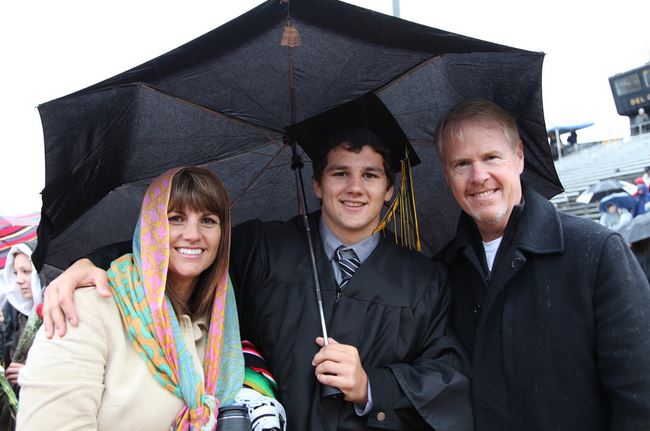Like many news outlets at this time of year, The Boston Globe recently profiled several young high school students preparing for the pomp and circumstance of graduation. But The Globe took a different angle than normal and stepped inside the world of a homeschool graduation ceremony:
“‘Pomp and Circumstance’ played softly from computer speakers hooked up to an iPod. Caps, gowns, and tassels were purchased on Amazon. Diplomas, also ordered online, were signed by parents.
It was a homemade graduation for six homeschooled students Friday evening in the garden behind the public library. With more than 7,000 students enrolled in homeschool programs in Massachusetts — a 20 percent jump since 2010 — such scenes are becoming more commonplace.
While the ceremonies may lack the whistles and bells of traditional high school commencements, they provide personalized send-offs for students who may have missed out on other time-honored school rites.”
Having witnessed several homeschool graduation “ceremonies,” I can say that they are certainly as unique and individualized as the one described above. And judging from what The Globe had to say about homeschool graduates, it seems that they have talents and abilities as unique as the graduation ceremonies in which they participate:
“Two of the graduates are Eagle Scouts; one designed clothes for a TV reality show last year; others are musicians, actors, and self-described robotics nerds. All are planning to attend college.”
These homeschool students are not only planning to attend college, they already are in college, having spent their high school years earning dual credit for courses taken on college campuses.
For years, homeschoolers have been met with raised eyebrows and wary inquiries as to the adequacy of their education. The NEA even went so far as to suggest that “home schooling programs based on parental choice cannot provide the student with a comprehensive education experience.”
The irony is, homeschoolers seem to almost receive a more comprehensive education experience than normal. Take the graduates mentioned above. It’s hard to believe they’re receiving a non-comprehensive education if they’re taking college courses while simultaneously working in fashion design and becoming Eagle Scouts, musicians, and robotics geeks. Meanwhile, their public school counterparts are sitting down to another standardized test or classroom period.
Perhaps, then, it’s not really a surprise that colleges are “welcoming them with open arms.” As a representative from Amherst College recently told NBC, homeschooled students “can be ‘innovative thinkers with a lot to bring to the table.’”
Today’s homeschoolers seem like unique, innovative thinkers when compared to their public school peers. But when one looks at homeschool history, today’s homeschoolers are simply following in the footsteps of great thinkers like Thomas Edison, Louisa May Alcott, Alexander Graham Bell, and others, all of whom were also homeschooled.
If we want America to produce more of these innovative thinkers and leaders, are we going to have to re-examine the institutionalized version of education we currently have?
Image Credit: Kristie Wells bit.ly/1hYHpKw
















Leave a Comment
Your email address will not be published. Required fields are marked with *